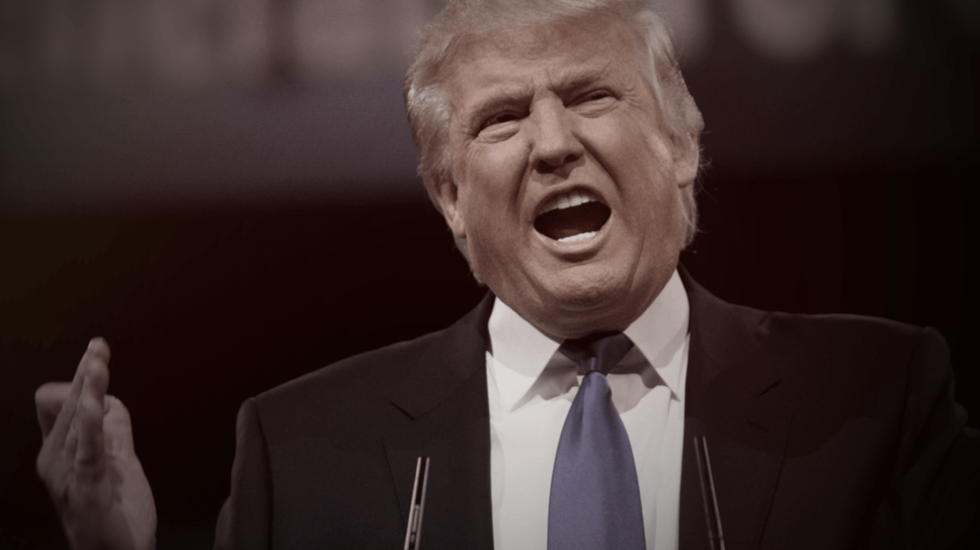By now, we all know that Donald Trump is happiest in political life when he’s in front of a friendly crowd, egged on, free to ad-lib, and delivering an attack on an adversary.
So it was last night when he spoke at a rally near Cincinnati. In retelling the story of his first State of the Union address, Trump paused for a moment to heap scorn on Congressional Democrats, who sat scowling with arms folded for much of his speech. One particular section, on declining unemployment rates among African Americans and Latinos, seemed to stick in the president’s memory.
“Even on positive news like that, really positive news like that, they were like death and un-American,” Trump said Monday. “Somebody said ‘treasonous.’ I mean, yeah, I guess, why not? Shall we call that treason? Why not? I mean, they certainly didn’t seem to love our country very much.”
Note the classic Trumpian construction: “Somebody said…” a terrible thing (in Trump’s world someone unnamed is always conveniently saying something the innocent president just repeats) followed by “I guess, why not?” (Also in Trump’s world, he can’t be held responsible for a statement, because he’s merely asking a question.)
Joseph McCarthy and Trump mentor Roy Cohn used this trick in the 1950s, to great effect. They often brandished mysterious lists of alleged Communist spies in the government. The origins of these lists were always murky; charges were hearsay at best. And McCarthy never accepted responsibility for a career ruined on bad information. He simply asked what he called the tough “Are you now or have you ever been?” questions–and, for a terrible time, he basked in his supporters’ applause.
Reaction to Trump’s charge of treason, a crime punishable by death, was predictably swift. “Whether I chose to applaud or not applaud is a First Amendment right that our forefathers wrote down and that generations before me have sacrificed many a life for,” said Sen. Jon Tester, the Montana Democrat, told the Washington Post. “And I would just say the president’s out of line with that statement.”
Today, White House spokesman Hogan Gidley trotted out the old “What’s a matter, can’t you take a joke?” excuse, telling NBC News the president’s remark was intended to be “tongue in cheek.”
And that’s where Trump and McCarthy differ. McCarthy may have treated politics as a game, but the self-righteous Wisconsin Republican never admitted in public that he was just saying stuff to get attention and gin up a crowd. Trump, for his part, only really seems to enjoy his job when he’s able to troll opponents from the Oval Office. Today, it’s a charge of treason, tomorrow it will be an attack on the FBI, next week, he’ll be back to Pocahontas or “Lock her up!” He has the world’s biggest platform, the most attentive audience, and yet he doesn’t place any value in the words that come out of his mouth. At best, it’s a tragic waste of our country’s time and energy. And at worst, there’s that nagging fear–that someday, he’ll say something he doesn’t really mean, prompting someone else to take an action they might not otherwise have taken, and the rest of us will have to live with the consequences.
